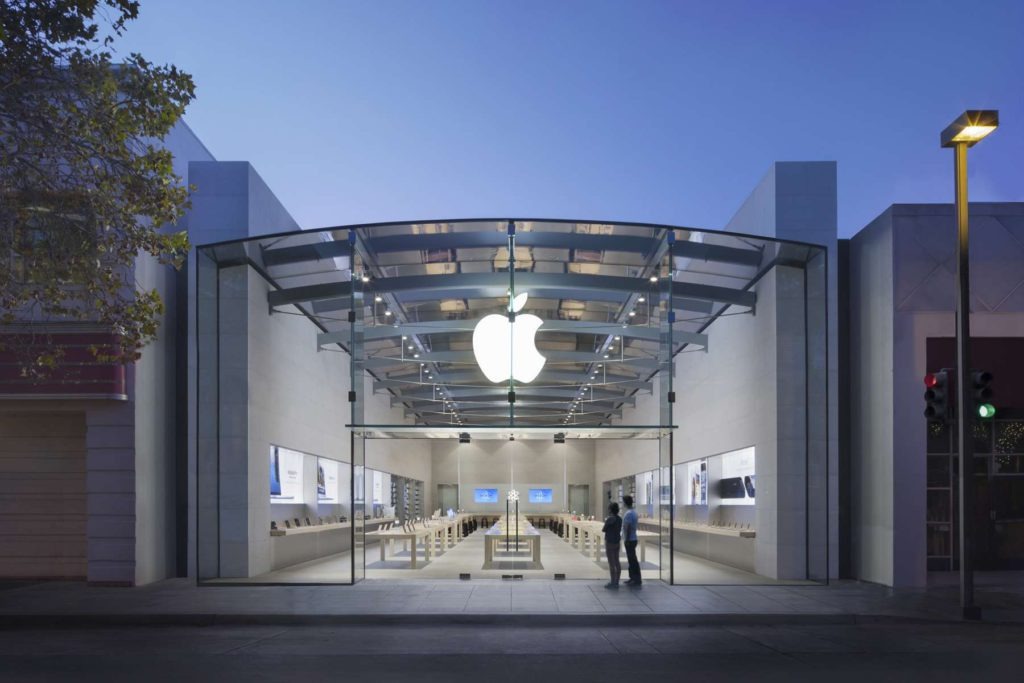Apple reveals auto plans to take on ‘mother of all AI projects’
14 June 2017

14 June 2017
For the first time, Apple has outlined its auto industry plans after years of secretly working on the project. It seeks to gain control of the self-driving system market, through its powerful expertise in both software and hardware, carving out a role in this high-margin segment.
Apple CEO Tim Cook revealed in a video interview with Bloomberg: ′We’re focusing on autonomous systems.’
Apple, the world’s biggest company by profit, sees autonomous car systems as a natural extension of its core software businesses. The company is investing heavily in artificial intelligence software such as Siri, which is used in products including the iPhone and the Apple Watch.
Cook says that Apple sees driving-assist technology as ′the mother of all AI projects,’ adding: ′It’s probably one of the most difficult AI projects actually to work on.’
One of the incredibly unique strengths of Apple that enabled it to dominate the smartphone market by profits is that it is an expert in both software and hardware, with many of its competitors in the smartphone sphere being hardware companies only. Apple’s ability to perfectly marry its software offering with its hardware through its enormous research and development budget allows it to produce a superior unique offering that no company has been able to match. This allowed it to even outcompete Google in the field, despite on paper Google’s software offering being just as good, if not superior. Google has to produce its software to be compatible with a huge range of devices, while Apple can tailor its software to a precious few. Controlling the whole package also allows it to maximise margins, development spend and marketing spend.
Therefore, Apple’s ability to match the function of its software in an intuitively easy-to-use hardware package could very well transfer over into the automotive field. The iPhone was not revolutionary in its hardware or software per se, but in the usability synergy that brought a new level of ease of use to the masses.
As such, it would be unwise to discount Apple simply because it seems late to the autonomous party.
However, with Cook saying autonomous systems are central to Apple’s mission going forward (and one that is extremely challenging to gain a foothold in), it will lead Apple into yet another full-on confrontation with Google, through Waymo – widely regarded as the current leader in the field.
Apple’s foray into the auto industry has been a bumpy ride, with it being forced to scale back its original project launched in 2014, called Project Titan, which was an incredibly ambitious project to build an entire Apple Car. Similar to Google, faced with spiralling costs and ballooning headcount, it scaled back the project in October 2016 to concentrate on the high-margin connected car software, while leaving the low-margin car manufacturing itself to the OEMs. Google has also announced the retirement of its own self-developed ′Firefly’ two-seater electric vehicle, which it says was only for experimentation, and is currently partnering with FCA (Fiat Chrysler) and using Chrysler Pacifica minivans for the final stage of its autonomous vehicle programme before commercial launch. It is also partnering with US ride sharer Uber rival Lyft. Apple for its part has invested $1 billion (€887 million) in Chinese ride sharer Didi, which has monopoly-level dominance (95%) of the rapidly growing Chinese ride-hailing market. Uber pulled out of the Chinese market last year.
It was revealed in April this year that it had been granted a licence to test self-driving vehicles in California, similar to others including Waymo and Chinse search giant Baidu, and a source told Bloomberg that Apple had by then been testing its autonomous technology on public roads in and around the San Francisco Bay area secretly for at least a year.
Cook says Apple has not yet decided how it will commercialise its technology – whether it will develop its own Apple Car or sell the technology to partners such as OEMs.
Questioned on Apple’s commercialisation strategy, Cook said: ′We’ll see where [our project] takes us. We’re not really [currently] saying from a product point of view what we will do.’
Notably, if Apple decides not to tie its autonomous system to its own physical car (or at least its own console), it will be a departure from its current business model of selling core software only through its own hardware as it does with iPhones and Macs.
This will make it harder to differentiate itself from competitors such as Waymo, making its offering less unique and likely lowering the potential margins it will be able to harness as it competes.
Photograph courtesy of Apple
The insight behind the news
Never miss another story – sign up to receive your complimentary Autovista Group Daily Brief. This timely and incisive daily briefing covering automotive news and insights on the issues affecting your business is delivered direct to your inbox.